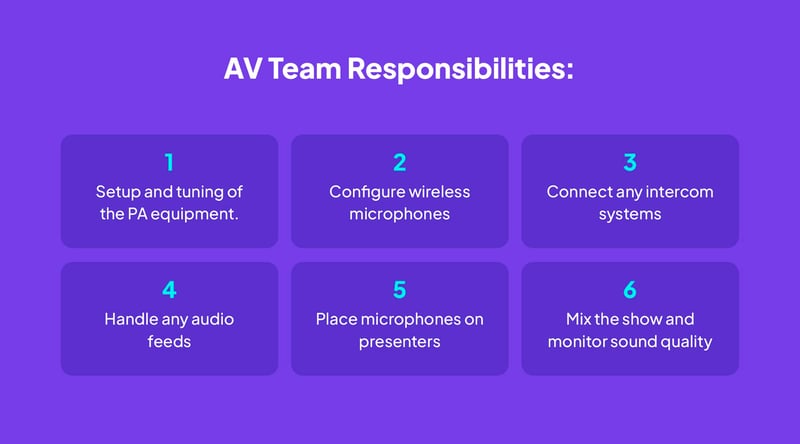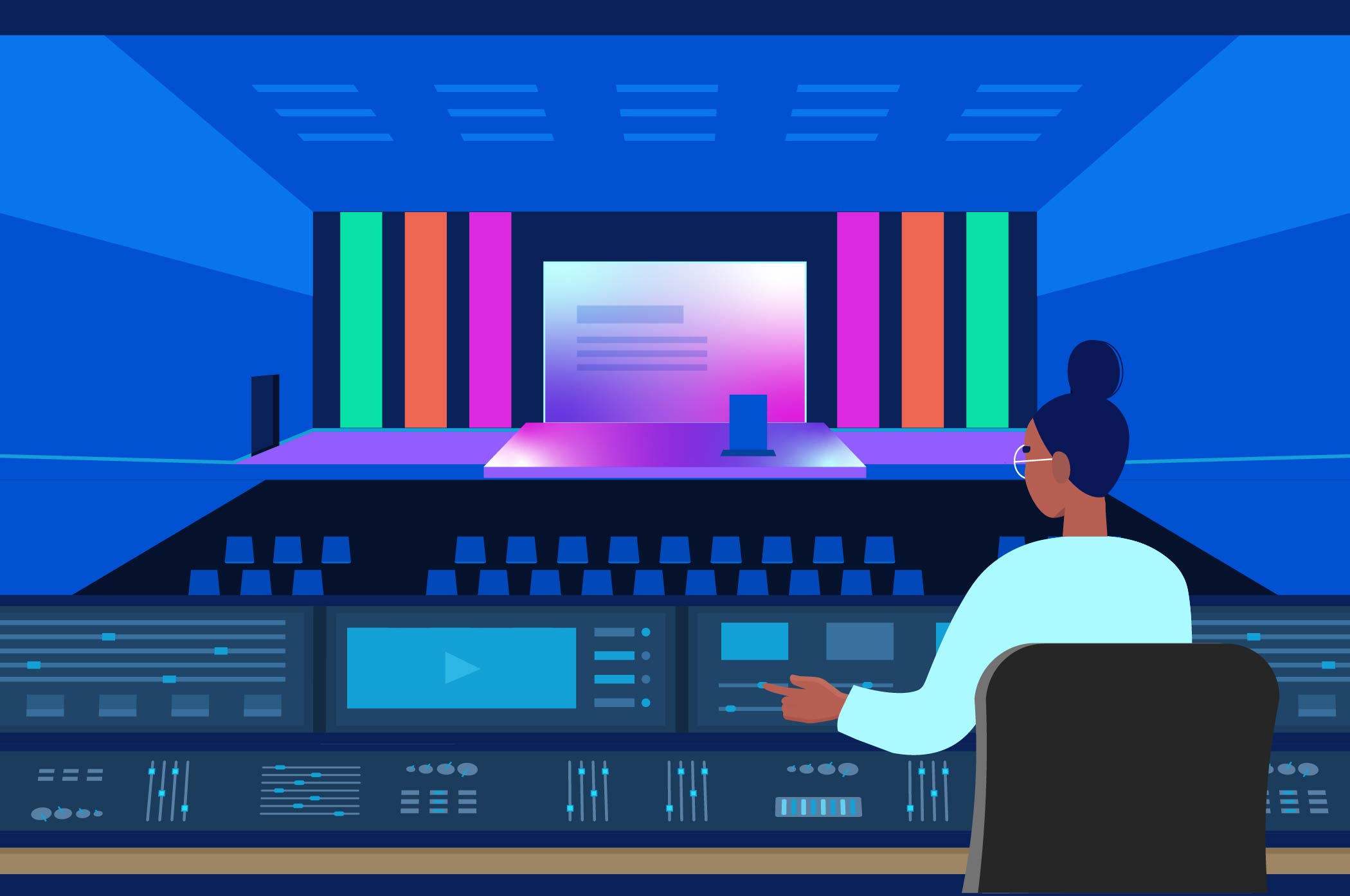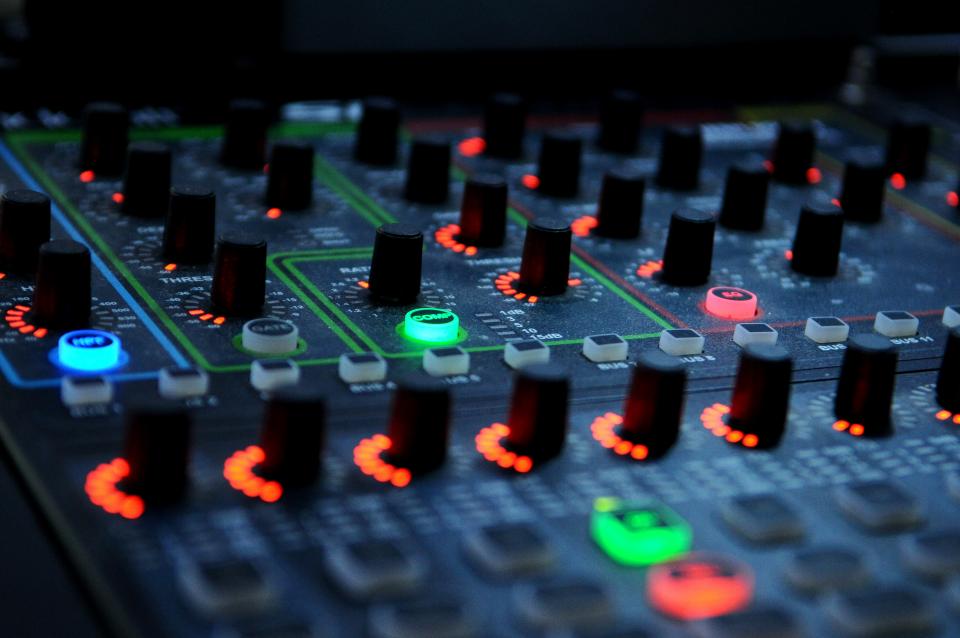Every team, whether it’s sports or business, has many specialists. In a football analogy, there is a quarterback, a kicker, different sideline coordinators, and even physical trainers (to name just a few).
Each person has an assignment and area where they excel and it’s up to the team to use their specialty to the benefit of all. When you walk into your next meeting or live event, there are going to be several people on that AV Production team, and without a guide to their responsibilities, you may wonder what they are doing and how your team is built.
In this blog series, we share some of the most common positions and how they impact your event. For starters, let’s talk about the Audio team. Your AV team of professionals should always include at least one specialized live sound audio engineer, and as you’ll read below, may be assisted by others as well.
The Responsibilities
The audio team is responsible for the overall sound quality of your event. Their job starts with the setup and tuning of the PA (public address) equipment, configuring the wireless microphones, connecting any crew intercom systems, plus handling any audio feeds which might come from video playback or other sources.
Once the event begins, the tasks shift to politely placing microphones on presenters, mixing the show and monitoring sound quality. These are just a few of the tasks that your sound team executes throughout the duration of your event.

For a small meeting or event with just a few microphones and basic production, one audio technician can typically handle everything themselves. As the size and complexity of the event grows, more equipment is added and the need for additional staff grows as well.
Different events have different audio system requirements. For our discussion here, we are going to discuss the crew for a typical corporate or university meeting/event. When it comes to music and entertainment, there’s a different set of technical positions and skills that are required which are not covered below.
The primary audio technician is generally referred to as an A1 which is just shorthand for the person who ultimately holds the responsibility for sound quality throughout the event.
What an A1-Audio Engineer Does
To say that an Audio Engineer’s job is to “make things sound good” is the simplest description of their job, but it doesn’t include the variety of ways A1s seek to perfect the sound environment. In broad terms, an A1 is there to make sure everything is plugged in, gets power, and is functioning. They will greet your presenters and ensure their wireless mic is placed for optimal sound pickup and work with the production team to test and tune all other audio sources.
As mentioned, when the event has a lot of presenters, a bigger audience requiring a large PA system or a high number or technicians needing a production intercom, the number of audio technical specialists needed will increase.
The additional crew you may see on your next event include:
A2 Audio Engineer
The A2 (or audio assistant) is a person who may be just as skilled as the A1 but plays a supporting role for your event. This can include helping to setup and tune a larger PA, helping multiple presenters put on and take off their microphones, or simply standing by to address an issue since the A1 is typically occupied at the mixer for the duration of the event.
Wireless Technician
A Wireless Technician is added when there are a large number of microphones being utilized. This person monitors which microphones are assigned to which presenter and closely watches their specialized tools to monitor the radio environment in the room.
Communications Technician
We've highlighted the importance of a production intercom for the crew, and that's where a Communications Technician comes in, managing this intricate system. Although technicians may be positioned throughout the venue, it's crucial for them to maintain seamless communication during the event. An intercom, commonly referred to as "comms," is equipped with a headset and microphone, enabling the crew to converse discreetly without interrupting the audience or presenters.
System Technician
In expansive venues like 10,000-seat ballrooms or arenas, the audio system involves a significant amount of equipment. To manage this, a production company might enlist a System Technician. This professional's primary role is centered around the event's setup, ensuring that amplifiers and speakers are optimally configured. While their work is mostly upfront, they continuously monitor the audio equipment throughout the event to preempt any sound quality issues. It's common to see the System Technician sitting quietly during the meeting; their unobtrusiveness is a sign of their proficiency, as a smooth event means they have fewer immediate tasks until it's time for the teardown at the event's conclusion.
Your Crew Makes the Difference

Don’t leave the quality of your sound up to chance when it has such an impact on how your event is perceived. Having an experienced A1 Engineer on your team is the difference between nailing it and having everyone say it was “okay,” and you should aim to knock every live presentation out of the park.
There is no substitution for being able to put on an electrifying live event, and you should be trusting the quality of your media to professionals you can trust to do the job right. Nothing is more annoying than poor audio!
Looking to create events that truly connect with your audience? Contact our team today.



